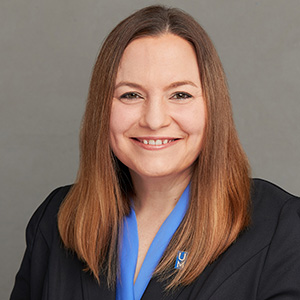Class of 2022 PI Millionaires
This year’s PI millionaires join their UofM colleagues in achieving this prestigious designation. More details can be found in the Research Celebration program.
Duane McKenna, Department of Biological Sciences 
Duane McKenna is the William D. Hill Professor of Biology in the Department of Biological Sciences at the University of Memphis. He studies insect systematics (diversification and relationships among species and higher taxa through time), genomics, and the ecology, evolution and genomic basis of insect-plant interactions. Other interests include chemical communication in insects and geographic patterns of insect diversity and endemism. Most of his research is focused on the order Coleoptera (beetles). Dr. McKenna's research program involves a combination of field, collections, and laboratory work, and has been supported by grants from the U.S. National Science Foundation, the U.S. Department of Agriculture, the U.S. Environmental Protection Agency, and other organizations. He is the founding Director of the University of Memphis Center for Biodiversity Research (CBio; www.umbiodiversity.org) and Director of the University of Memphis Agriculture and Food Technologies Research Cluster.
Funded Grants (Current/Active)
2021-2026
Total costs: $1,296,531 (including $24,999 ROA supplement awarded in 2022)
United States National Science Foundation; Division of Environmental Biology: Phylogenetic
Systematics Program & Division of Integrative Organismal Systems: Integrative Ecological
Physiology Program.
D. McKenna (PI), S. Haddad Co-PI (University of Memphis), R. Mitchell Co-PI (University
of WI-Oshkosh)
Title: Investigating chemosensory evolution in longhorned beetles using a comparative
phylogenomic framework that integrates genomic, morphological, and biochemical data.
2020-2025
Total costs: $884,474
United States National Science Foundation; Division of Environmental Biology: Phylogenetic
Systematics Program.
D. McKenna Other Senior Personnel (subaward PI), H. Song PI (Texas A&M University),
S. Shin Co-PI (Postdoc in the McKenna Lab until 2020, now an assistant professor at
Seoul National University)
Title: NSF-DEB-NRC: Multidisciplinary approach to bioacoustics: Integrating phylogenomics,
biophysics, and functional genomics to unravel the evolution of hearing and singing
in katydids.
Helen Sable, Department of Psychology 
Helen Sable, PhD is a professor and associate chair in the Department of Psychology at the University of Memphis (UofM). Dr. Sable’s research program spans the fields of behavioral neuroscience and neurotoxicology, with a central focus on examining neurobiological and environmental factors that contribute to externalizing behavior. There is inherent complexity in this approach because these factors often interact (e.g, gene-environment interactions). The results of her research inform government regulatory practices, aid in pharmacotherapy development, and contribute to the scientific literature on the etiology of externalizing disorders, particularly Attention-Deficit Hyperactivity Disorder (ADHD) and Substance Use Disorder (SUD). Additionally, Dr. Sable serves as an associate editor for the journal Neurotoxicology and Teratology, is a past president of the Developmental Neurotoxicology Society, and a previous recipient of the Patricia Rodier Mid-Career Award in Research and Mentoring.
Active
NSF 2051105
REU Site: Memphis Neuroscience Techniques and Research Training Program (NeuroSTART)
H Sable and D Lester (co-PIs)
5/15/2021 – 5/14/2023; Total costs: $285,908
The goal of this project is to provide research experience and professional development skills to first-gen and underrepresented minority undergraduates to ensure they are more successful at securing admission to graduate neuroscience programs.
Role: Principal Investigator
NIH R15DA04679701
Identifying the neurophysiological basis of risky decision-making
N Simon (PI)
7/1/2019-6/30/2023; Total costs: $395,791
The goal of this project is to determine the neurophysiological mechanisms that underlie pathological risky decision-making by using behavioral paradigms designed to evaluate the different stages decision-making, including evaluating pre-decision deliberation, the encoding process of consequences associated with a risky choice, and abnormal processing of rewarding and aversive events.
Role: Co-Investigator
Completed
Oak Ridge Associated Universities (ORAU)
Critical Review and Analysis of Barriers to Entry for Post-Secondary Women in Physical Sciences and the Impact of the Pandemic on an Already Imperfect Culture
F Sabri (PI)
4/1/2021 – 3/31/2022; Total costs: $68,105
This project examined systemic barriers and acute pandemic-related obstacles to gender diversity in laboratory-based science.
Role: Co-Investigator
(Continued on next page)
Enzymotec
Enteral nutrition with InCog enhances brain development after preterm birth
R Buddington (PI)
07/11/2014 – 04/30/2015; Total costs: $128,703
This project demonstrated significant improvements in structural and functional indicators of neurodevelopment in preterm pigs fed formula supplemented with docosahexanoic acid (DHA) attached to phosphatidylserine.
Role: Co-Investigator
NIH/NIEHS R00ES015428
Assessment of Psychostimulant Addiction Risk Following Developmental PCB Exposure
H Sable (PI)
03/01/2009 – 11/30/2012; Total costs: $722,099
The goal of this project is to determine if developmental exposure to polychlorinated biphenyls (PCBs) enhances the predisposition to develop an addiction to psychostimulants using a rodent model.
Role: Principal Investigator
Esra Ozdenerol, Department of Earth Sciences
 Esra Ozdenerol is Dunavant University Professor of Geographic Information Systems
in the Department of Earth Sciences since 2003. She is affiliated with the Departments
of Preventive Medicine and Health Outcome Policy of the University of Tennessee Health
Science Center and is the director of the GIS Certificate Program at the University
of Memphis. She also directs the Spatial Analysis and Geographic Education Laboratory
in the Department of Earth Sciences.
Esra Ozdenerol is Dunavant University Professor of Geographic Information Systems
in the Department of Earth Sciences since 2003. She is affiliated with the Departments
of Preventive Medicine and Health Outcome Policy of the University of Tennessee Health
Science Center and is the director of the GIS Certificate Program at the University
of Memphis. She also directs the Spatial Analysis and Geographic Education Laboratory
in the Department of Earth Sciences.
Ozdenerol was the associate director of Benjamin L. Hooks Institute for Social Change of the University of Memphis from 2010 till 2013. She obtained her Ph.D. in Geography in 2000 and her Master of Landscape Architecture degree in 1996 from the Louisiana State University and received her B.S. degree in Landscape Architecture and Agricultural Engineering from the University of Ankara, Turkey. Before joining the University of Memphis, she was an assistant professor of architecture of the Florida International University in Miami from 2000 to 2003.
She specializes in geographic information systems and has served as a technical consultant to various public, government, and international agencies. Her current research interests entail use of the geospatial technologies (including geographic information, remote sensing, cartographic and geostatistical analyses) in a diverse range of public and environmental health issues and gender inequalities. Her latest publications involve studies about the spatial health and gender inequalities, GIS’ role in Covid-19 management and control.
Her research focus involves a combination of field, drone flight operations, laboratory, GIS and remote sensing, and computer modeling techniques. She has been supported by grants from the U.S. National Science Foundation, the U.S. Department of Agriculture, the U.S. Environmental Protection Agency, and TN state organizations.
The NSF ADVANCE funded ASPIRED https://www.memphis.edu/aspired/ project adapts evidence-based strategies from other ADVANCE institutions to change the institutional climate at the UofM and increase gender equity in recruitment, hiring, retention, and advancement in STEM.
Funded Grants (Current/Active)
2019-2023
Total costs: $1,000,000
United States National Science Foundation ADVANCE;
E. Ozdenerol (PI), S. Ivey (Co-PI), C. Stewart (Co-PI), F. Sabri (Co-PI), A. Rockinson
(Co-PI)
Title: - ASPIRED: Adaptations for Sustainable Policies and Increased Recruitment Excellence in Diversity
